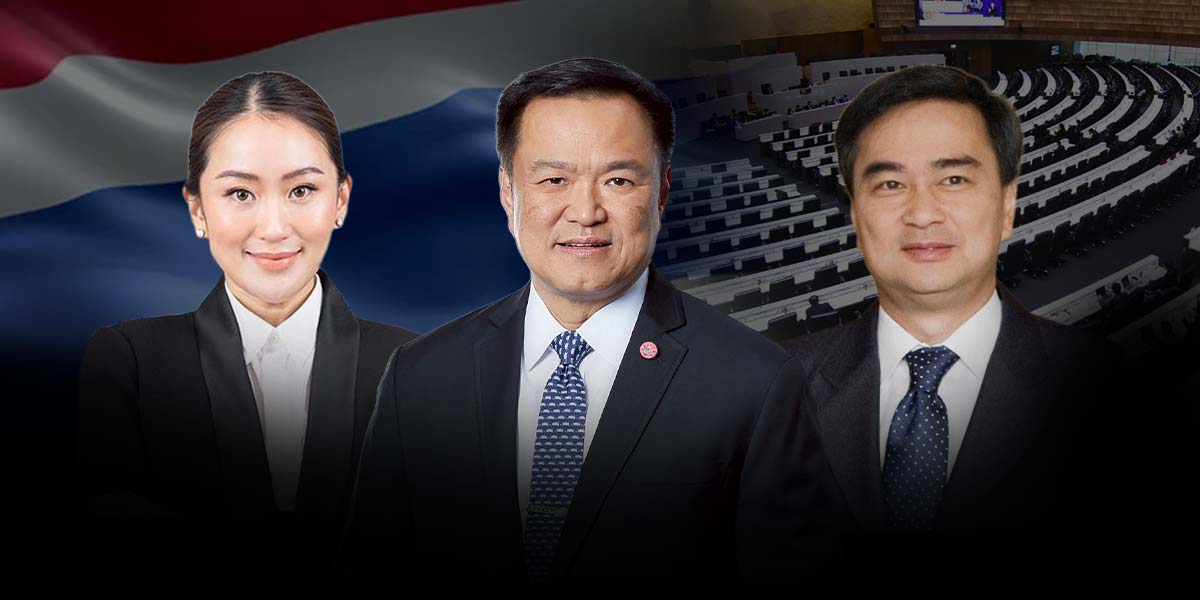Thailand’s political scene has faced renewed instability over recent months, as major parties reconfigure alliances amid mounting tension and leadership shifts.
Bhumjaithai Party, headed by Mr. Anutin Charnvirakul, exited the government coalition once led by ex-Prime Minister Paetongtarn Shinawatra in response to a diplomatic scandal involving leakphone call with Cambodia’s former premier Hun Sen.
In that conversation, the ex-Prime Minister had made a comment that the Constitutional Court deemed as a violation of ethical standards, resulting in her ousing in July.
Following the event, Bhumjaithai forged a temporary alliance with the opposition People’s Party for the majority premiership vote, which culminated in Mr. Anutin’s appointment as the country’s 32nd head of government. This partnership was contingent upon Mr. Anutin’s commitment to dissolve parliament within four months, a term Bhumjaithai formally accepted.
On September 28, Bhumjaithai unveiled a four-pronged agenda to guide policy in the government’s abbreviated term: initiatives in economic revitalization, defense and foreign relations, disaster management and public welfare, as well as crime and social stability.
Notably, the party pledged to reinstate the Half-Half economic stimulus program, which was met with overwhelming public interest, as all 20 million available spots were filled within three days of opening applications.
Meanwhile, the People’s Party—a successor to the dissolved Move Forward Party following a Constitutional Court order on August 7, 2024—chose to abstain from joining the government, despite cooperating with Bhumjaithai in selecting Mr. Anutin as premier.
The party’s most recent significant development saw its proposed constitutional amendments pass both the House and the Senate, clearing the way for a special committee to consolidate and finalize the draft legislation within 15 days.
Pheu Thai Party, the previous coalition’s anchor and the party of the former Prime Minister, opted to maintain independence and not align with either the government or the main opposition following Mr. Anutin’s elevation to Prime Minister.
Ms. Shinawatra subsequently resigned as party leader—a move, according to Pheu Thai, intended to prevent the issue of her status for political leverage in the future. Officials also disclosed that the party’s next leader would not emerge from the Shinawatra family.
Pheu Thai is not alone in undergoing leadership transitions. On October 18, the Democrat Party also selected a new chief, bringing back Mr. Abhisit Vejjajiva, who previously served as both party leader and Thailand’s 27th prime minister.
On that evening, he outlined his three-pronged vision, emphasizing the need for economic transformation, restoring principled democratic politics, and combating corruption to ensure the party remains integral to Thailand’s future despite prevailing challenges.





